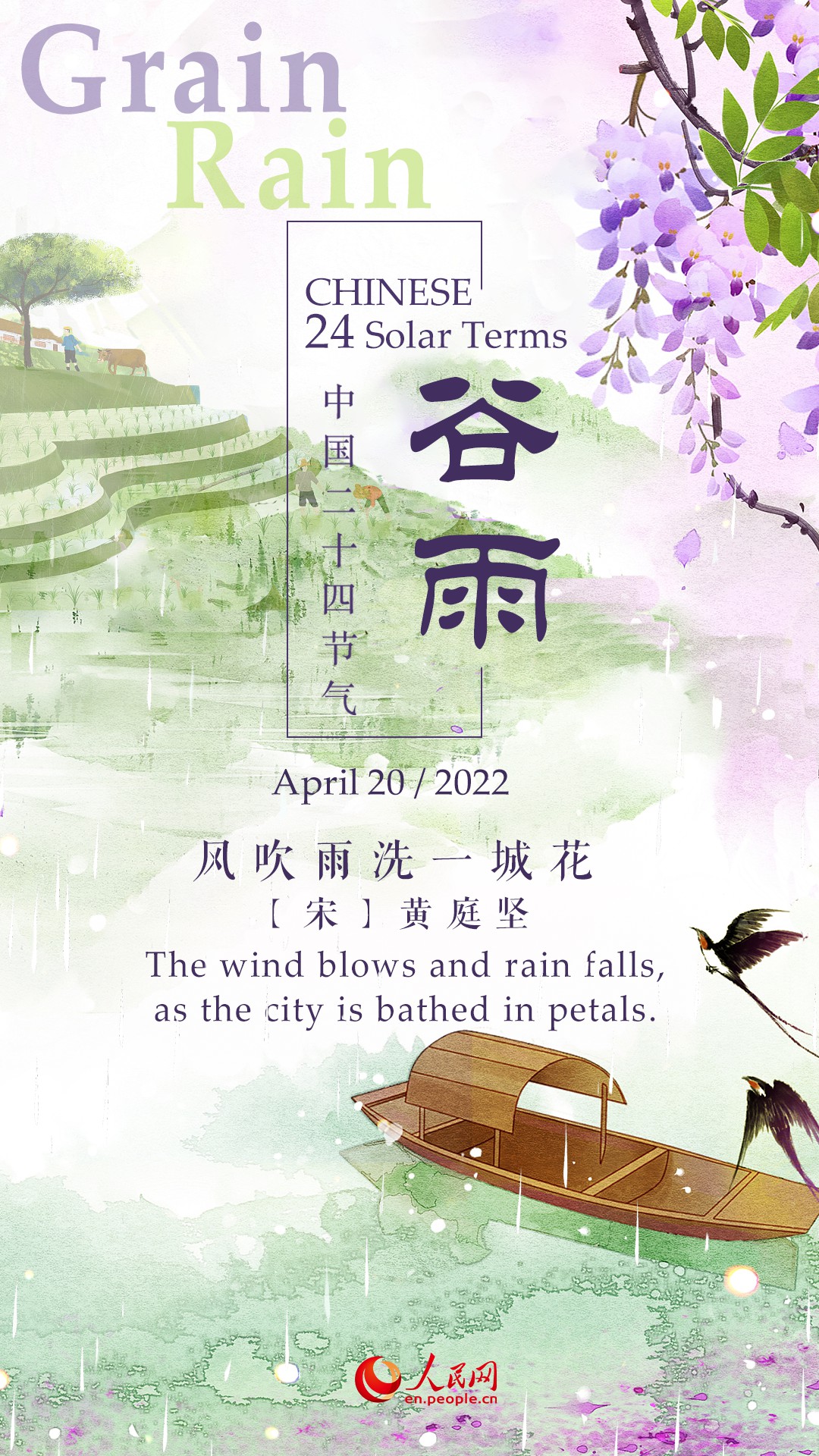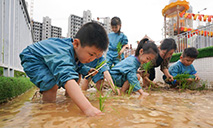Calendar for Chinese 24 Solar Terms: Grain Rain
Guyu, or Grain Rain, is the sixth solar term according to the traditional Chinese lunar calendar, making it the last term of spring. The term usually arrives around April 19-21. This year, it falls on April 20.
The Grain Rain signals the end of cold weather and a rapid rise in temperature. It originates from the old saying, "Rain brings the growth of hundreds of grains," which shows that this period of rainfall is crucial for crops. Grain Rain brings a marked increase in temperature and precipitation. It's an important time to protect plants from insects and other pests.
Special Diet
Drinking tea
In southern China, people traditionally drink tea on the day of Grain Rain. Spring tea during Grain Rain is rich in vitamins and amino acids, which can help to remove heat from the body and is good for the eyes. Drinking tea on this day is also said to prevent bad luck.
Eating Chinese toon
People in northern China traditionally eat Chinese toon, a leafy vegetable native to eastern and southeastern Asia, during Grain Rain. An old Chinese saying goes "Chinese toon before the rain is as tender as silk." The vegetable is nutritious and can help to strengthen the immune system. It is also good for the stomach and skin.
Traditions
Offering sacrifices to the god of the ocean
The Grain Rain festival is celebrated in fishing villages across the coastal areas of northern China. Grain Rain marks the start of the fishermen's first voyage of the year. The custom dates back more than 2,000 years, when people believed they owed a good yield to the gods, who protected them from stormy seas. People would worship the sea and make sacrifices during the Grain Rain festival, praying for a bountiful harvest and the safe return of loved ones.
Appreciating the peony
Guyu also sees the bloom of the peony, which is known as the "Queen of All Flowers" in Chinese culture. As a result, many people go out to admire the local peonies. In Shandong, Henan and Sichuan, there are even festivals to appreciate the beauty of the peony when Guyu falls.
Dislodging five poisonous creatures
As the temperature gets warmer after Grain Rain, worms and insects awaken from their winter slumber and begin to breed. At this time of year, farmers need to take measures to protect their crops and themselves. One custom is to prepare Grain Rain posts and pray to the Chinese gods for a good harvest.
The Grain Rain post is a typical Chinese New Year picture. In the middle of the picture, there is a rooster with a scorpion under its claw, or an image of "Tianshi" dislodging five poisonous creatures (scorpion, viper, centipede, house lizard and toad). The posts reflect the ancient Chinese desire to remove harmful animals from their surroundings and pray for a good harvest.

Related:
Calendar for Chinese 24 Solar Terms: Qingming
Calendar for Chinese 24 Solar Terms: Spring Equinox
Calendar for Chinese 24 Solar Terms: Awakening of Insects
Photos
Related Stories
Copyright © 2022 People's Daily Online. All Rights Reserved.










